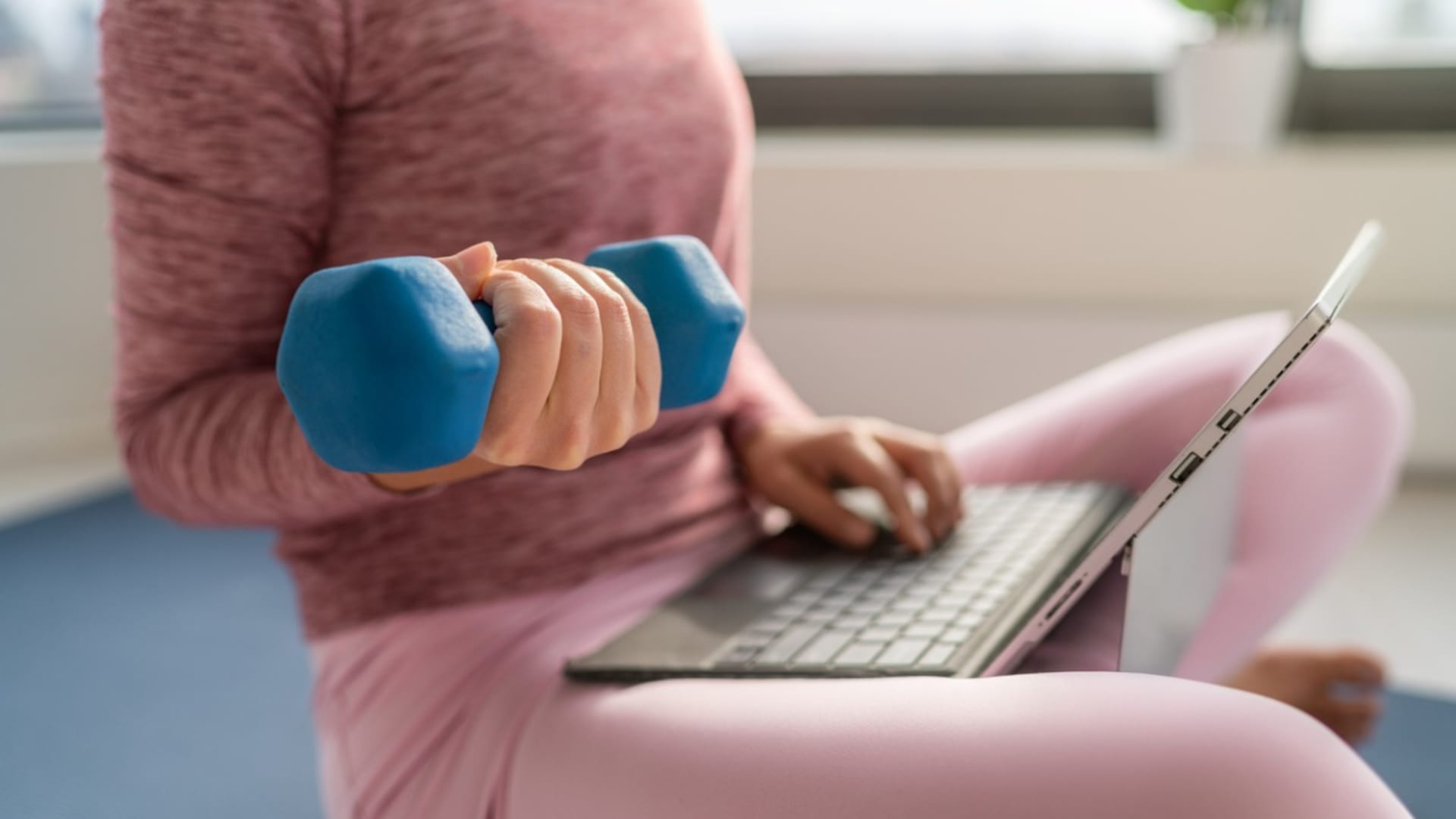Remote work is fantastic. We are big believers and advocates of it here at BairesDev, but like everything, it comes with its particular set of challenges. And now that the modality has become more widespread worldwide, some of its not-so-beneficial aspects have come to light, like an increase in sedentariness and a lack of Vitamin D.
That is why we’ve compiled this list of 6 tips to help you stay physically and mentally healthy while working from home.
1. Exercise regularly
This one is not a surprise. New findings reveal that a sedentary lifestyle is more damaging to your health than smoking, heart disease, and diabetes. We have many training options today, ranging from MMA and martial arts to yoga and calisthenics, and things you can do yourself at home, in an open space, or at the gym. There is something for everybody, so try different classes or disciplines until you find something appealing to you. Additionally, taking a 10-minute break to stand up every hour can make all the difference.
Use a portion of your lunch break for a 20-minute walk around your neighborhood. As a remote worker, you have extra time in your day that you don’t have to waste commuting to an office. Use that time to exercise and move, or even consider using a standing desk to avoid sitting for long work stretches.
Besides the benefits to your physical health, going for walks also has benefits directly related to your job performance. According to a study by Stanford University, even a short walk can increase creative output by 60%. This benefits those in creative fields or those whose job requires innovative approaches to problem-solving, such as coders and developers.
2. Have a balanced diet
While apps such as Uber Eats can be tremendous timesavers to many of us, it is easy to overuse them and get most, or at least a big part, of our meals as takeouts. But unfortunately, that may also come with the price of not paying enough attention to having a healthy and balanced diet.
According to the National Heart, Lung, and Blood Institute (NHLBI), a healthy diet is one that emphasizes nutritious foods, such as fruits, vegetables, whole grains, and low-fat dairy products. Eggs, beans, nuts, fish, poultry, and lean meat are also included in the list.
The Centers for Disease Control and Prevention (CDC) recommends not skipping any meals, including breakfast. People with few distractions at home may find that they are more aware of hunger than they would be at the workplace. These individuals can keep healthy snacks, such as fruits, on hand to avoid snacking on chips.
3. Take care of your eyes
When talking about taking care of our health and body, we usually neglect the eyes, but just like the rest of your body, you need to give your eyes a break when you work from home. Excessive exposure to blue light𑁋found in nearly every light source, including the sun𑁋can lead to dry, irritated eyes and harm your vision in the long run. So make sure to look away from your screen every 20 minutes or so for at least 20 seconds at something 20 feet away. That will give your eyes a chance to recuperate and avoid eye strain and potential headaches.
If your job requires you to stare at a computer screen for most of your day, try investing in alternative ways of reducing the strain blue light causes. Installing blue light filters on your screens or getting a pair of blue light glasses are easy and inexpensive ways to do that.
4. Set up a separate office space
Use a space in your home that’s designated solely for work. Even if you live in a tiny studio, set up a desk and chair and separate the professional from the personal. This will allow you to be in “work mode” whenever you are in this area and be off of it when you are not, leading to a better work-life balance. Take a look at your office area. Is the room dark or sunny? Is your desk cluttered or clear? Is the temperature comfortable? All of these things will indeed affect your mental and physical health. Raise the blinds to get a boost of vitamin D, open the windows for some fresh air, and add some plants to your office for increased happiness and other health benefits. Since we will spend a lot of time sitting, pay attention to getting a good chair. Invest in a comfortable, ergonomically sound chair that will keep you aligned adequately throughout the day.
5. Keep hydrated
Drinking enough fluids is essential for preventing dehydration, which can lead to constipation and mood swings, notes the CDC. Water is the best beverage choice, but drinking moderate amounts of coffee and tea is also acceptable. It is best to avoid sugary beverages, such as sodas, energy drinks, and fruit drinks. A good practice is to have water readily available whenever you are working. Remember that an adult should drink 8 to 10 glasses of water daily to stay hydrated.
6. Stick to a daily routine
The CDC recommends sticking to a daily life routine outside of work, saying that this may help reduce stress. Go to bed and wake up in the morning at the same time every day. It is also essential to allow enough sleep time. Most people need at least 7 hours of good-quality sleep. Even if you have a flexible job, try to follow specific working hours and have your meals at the same time every day.
But a good routine is not only about following a schedule. Even small things like getting dressed in the morning help our brains shift into “work” mode. It signals that it’s time to get serious about work and helps create a boundary between work and home. There is no specific style of clothing to follow. Business casual or any other style is acceptable.
In conclusion, staying healthy while working from home is simple but requires a conscious effort. By following these simple tips, you will stay healthier, boost your productivity, and have a better work-life balance in no time.







